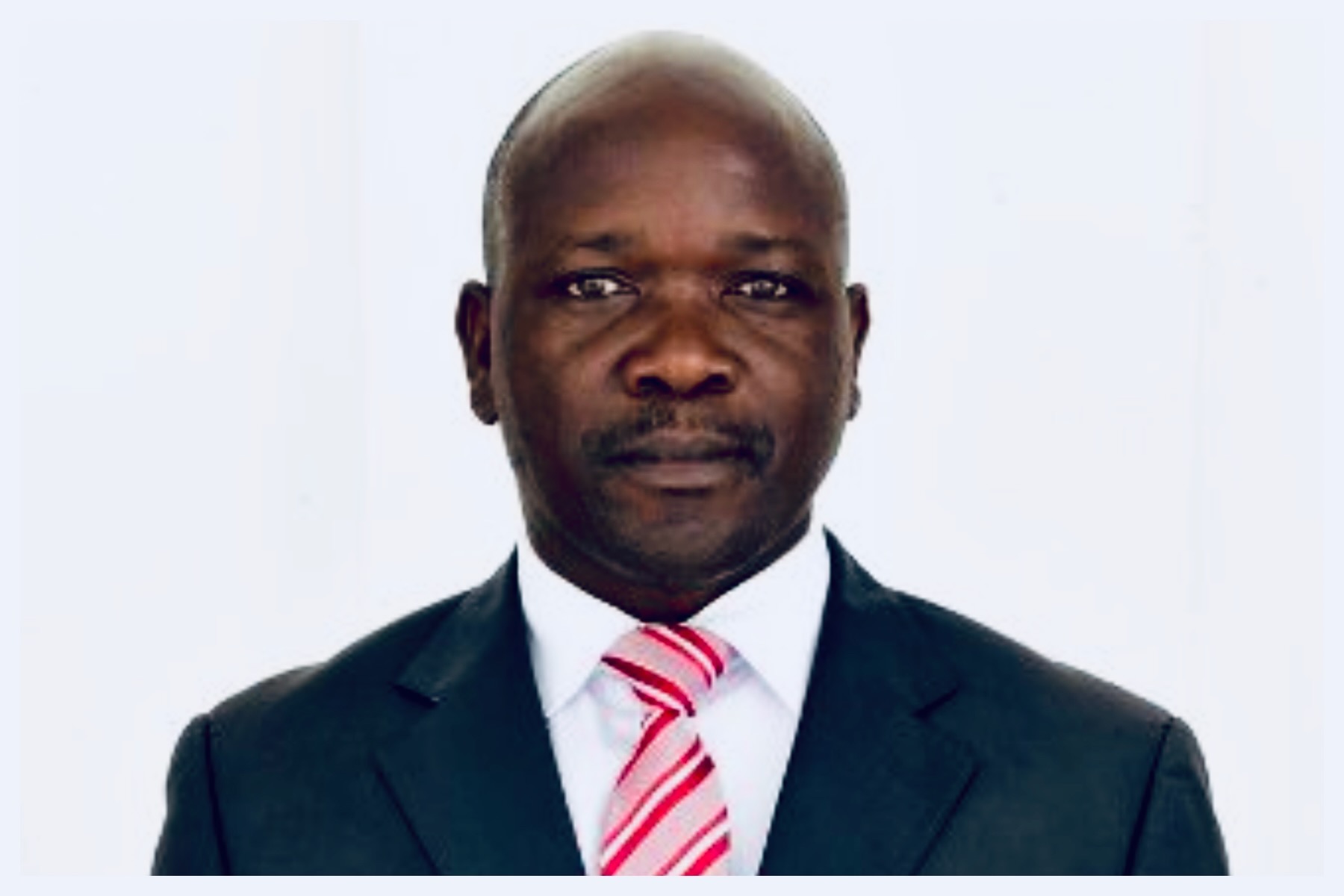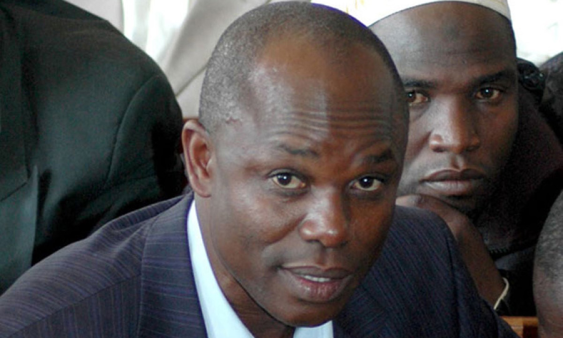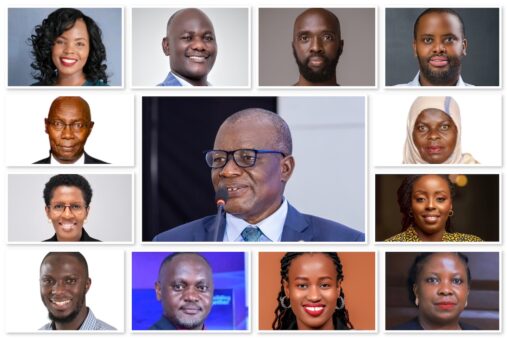The High Court (Commercial Division) Judge, Hon Justice Stephen Mubiru has set aside an arbitral award of USD1,251,916.08 (UGX5,623,025,394.8) and UGX954,372,437.77) awarded to tower companies ATC Uganda Limited and Eaton Towers Uganda Limited against Smile Communications Uganda Limited.
The arbitral award, CAD/ ARB/No.06 of 2021 was made on 28th January 2022 in Arbitration Cause No. 0004 of 2021, by Cornelius Henry Mukiibi Sentamu, an arbitrator.
Smile Communications, however, challenged the arbitral award in the High Court on the grounds that among others, “there are errors apparent on the face of the record; it is contrary to public policy; it was procured by evident partiality in favour of the respondents; the dispute between Smile Communications and Eaton Towers Uganda was not arbitrable; and it was made contrary to the provisions of The Arbitration and Conciliation Act; in that, it was delivered beyond the statutory timelines and those set out in the arbitration agreement and the parties were not accorded equal treatment at the point of delivery of the award”.
The judge however struck out all the other grounds but maintained that the arbitral award had been delivered out of time and that the arbitrator had exhibited partiality in the process.
In his 11th April 2023 ruling, the Hon. Justice Stephen Mubiru agreed with Smile Communications lawyers, that the arbitral award had been made out of the stipulated time and that the arbitrator had exhibited partiality.
“The award is bad in law and contrary to the agreed terms by which the parties, as well as the Arbitrator, are bound, it having been handed down by the Arbitrator after effluxion of the greed period, and it is also vitiated by a reasonable apprehension of partiality on the part of the arbitrator,” ruled Justice Mubiru.
“For these two reasons, the award is hereby set aside with costs to the applicant (Smile Communications,” ruled the judge.
M/s TARA Advocates, formerly Tibugwisa and Co. Advocates, represented Smile Communications.
M/s Ortus Advocates represented Eaton Towers while M/s Katende, Ssempebwa & Co. Advocates represented ATC Uganda.
Background to the commercial dispute
Smile Communications executed a Colocation Licence and Services Agreement with ATC Uganda, a provider of communication towers, in November 2012 and another Master Space Tower Use Agreement with Uganda Towers Limited on 11th October 2013. Similarly, Smile Communications and Eaton Towers entered a Master Tower Space Use Agreement (MSA) on 11th October 2013 which was amended by a first side letter on 16th December 2015. Under the agreement, Smile was to pay for tower space usage and is also charged for power use, separately.

In May 2015 ATC Uganda acquired Uganda Towers and sought to harmonise the charges across the board with Smile Communications. Following re-negotiations, in November 2015 the parties agreed, to harmonise rates. But due to late payments, on 2nd July 2018, ATC Uganda disconnected Smile Communications over arrears. Smile alleges that following the disconnection, it was coerced and under duress, made to sign a new agreement on the 15th of July 2018. Under the new arrangement, Smile would now pay a monthly fee of USD1500 exclusive of VAT per site. This included site rentals and power costs. Previously power was billed separately.
Following the 2019 acquisition by ATC Uganda’s parent company, Eaton Towers globally, ATC Uganda merged with Towers Uganda. ATC inherited all agreements between Smile and Eaton Towers.
In early 2021, a dispute arose between Smile Communications and ATC Uganda. Smile Communications accused ATC Uganda of obtaining the 15th July 2018 amended Colocation Licence and Services Agreement under duress undue influence and misrepresentation since its services had been cut off and the only condition for restoring them was an amended agreement. Smile Communications wanted the court to declare that the USD1500 monthly rental fees, which excluded VAT, to be varied and or rectified to include VAT. It also wanted the court to order ATC Uganda to refund to it UGX415,022,854.2, being the extra VAT charges as well as other general damages and a permanent injunction barring ATC Uganda from demanding and or collecting any other fees under the impugned agreement, amongst other orders.
Smile also challenged the Master Space Tower Use Agreement with Eaton Towers, concerning the legality of Eaton Towers Uganda’s billing practices in relation to the consumption of power/electricity consumed by Smile Communications’s equipment at Eaton Towers Uganda’s sites on the ground. Smile Communications contended that the billing practices on the consumption of power did not conform to the laws regulating the generation, distribution and sale of electricity in Uganda.
Smile Communications also contended that the Master Tower Space Agreement, the First Side Letter, and Eaton Towers Uganda’s power billing practices are illegal, irregular, and unenforceable. Smile also wanted a compensation of USD 468,000 and another compensation of USD 379,528 being the estimated excessive power charges for the 26 sites leased by Smile Communications from Eaton Towers. Smile also prayed for special damages of USD 200,000 being estimated lost revenue. It also prayed for general damages for inconveniences suffered due to the enforcement of illegal electricity charges, punitive damages for the illegalities committed by Eaton Towers Uganda, and a permanent injunction restraining Eaton Towers Uganda from collecting the sums in dispute, as well as interest in the monetary claims by Smile Communications.
As per the agreement, the parties decided to go for arbitration. Both ATC and Eaton Towers denied all the allegations made by Smile Communications and counter-claimed against Smile Communications for an award of USD 283,353.63 and UGX. 516,537,552/= being unpaid site rentals owed by Smile Communications to Eaton Towers Uganda. They also wanted Smile to pay unbilled amounts due to Eaton Towers Uganda arising out of the expiry of leases on 24 sites amounting to USD 503,535.55 and UGX. 258,230,005 as well as general damages for breach of contract and costs of the counter-claim.
In an award handed down on 28th January 2022, the arbitrator dismissed all of Smile Communications’s claims and found in favour of the tower companies on all heads of the counter-claims raised. The Arbitrator also found Smile Communications to be in breach of its payment obligations under the contract and ordered Smile to pay the billed outstanding sums of USD 297,721.79 and UGX. 384,156,173.10 as well as the unbilled amounts due to the expiry of leases on 25 sites amounting to USD 854,194.29 and UGX. 570,216,264.67 respectively. Smile was also ordered to pay USD100,000 in general damages for breach of contract as well as the costs for the counter-claim.
This is over and above the unpaid billed fees, before the dispute, which had now grown to USD 513,141.29 and UGX. 11,833,408,890.
Smile Communications challenges the arbitral award
However, Smile Communications rushed to the High Court to challenge the award, on grounds that among others grounds that “there are errors apparent on the face of the record; it is contrary to public policy; it was procured by evident partiality in favour of the respondents; the dispute between Smile Communications and Eaton Towers Uganda was not arbitrable; and it was made contrary to the provisions of The Arbitration and Conciliation Act; in that, it was delivered beyond the statutory timelines and those set out in the arbitration agreement and the parties were not accorded equal treatment at the point of delivery of the award”.
The judge however struck out all the other grounds but maintained that the arbitral award had been delivered out of time and that the arbitrator had exhibited partiality.
Court heard that while the arbitrator was bound by the arbitration agreement which provided under Clause 2.3 that the arbitration shall be conducted and concluded within (ninety) 90 days from the commencement of the arbitration proceedings unless the arbitrator at the preliminary hearing found it impracticable and/or necessary to extend timelines for the conclusion of such arbitration. Similarly, under the agreement for the appointment of an arbitrator made on 17th March 2021 between the parties and the Arbitrator, it was also agreed that the arbitration was to be concluded within a period of 90 days from the date of commencement of arbitration or such time as the arbitrator and the parties would mutually agree upon”.
However, contrary to the arbitration agreement and the appointment agreement, the arbitrator conducted and concluded the arbitration in a period of over ten (10) months. While the arbitration should have closed by 10th December 2021, the arbitrator on 9th December 2021, the Arbitrator unilaterally enlarged the time to 22nd December 2021 and again to 21st January 2022 and then to 2nd February 2022.
However, unknown to Smile Communications, the award was delivered earlier than that date and Smile Communications only received notice of the same on 1st February 2022 by which time, ATC Uganda and Eaton had switched off Smile Communications’s sites at the stroke of midnight on 1st February 2022.
“If an arbitral award is not made either within the statutory time period or the extended period, then the mandate of the tribunal stands terminated as it becomes functusofficio. No award can be passed after the mandate of the arbitrator has been terminated by effluxion of time,” thus ruled, Justice Mubiru.

“It is this Court’s view that where the parties prescribe their own time limits in an arbitration agreement, such time period can be extended only if the parties consent to the same. In cases where the parties have already taken recourse to enlarge the time period under an arbitration agreement, the arbitrator cannot exercise his or her power to extend such time, in the absence of consent of the parties. The arbitrator cannot exercise his or her power in extending the time fixed by the parties in the absence of the consent of both of them. An arbitrator is unable to unilaterally extend contractual time limits absent party consent and the arbitrator’s mandate to make the award terminates upon the expiry of the time fixed by the parties. If the parties have a fixed time limit for rendering the award, the time limit is extendable only by mutual consent. If consent for extension is denied by one party, and, the award is not rendered within the time fixed, the mandate of the arbitrator terminates. The arbitrator was bound to make and publish his award within the time mutually agreed to by the parties unless the parties consented to further enlargement of time. In circumstances of this nature, an extension declared by the Arbitrator and not mutually agreed on by the parties is ineffective. Where (a) the arbitration agreement prescribes a period within which the Award is to be passed and (b) the said period has expired and has not been extended by mutual consent of the parties, the award passed by the Arbitrator after effluxion of such period is bad in law and contrary to the agreed terms by which the parties, as well as the Arbitrator, are bound. This ground alone would justify the setting aside of the Award. However, for completeness sake, the rest of the grounds will be considered,” he went on.
Justice Mubiru also agreed with Smile Communications lawyers, that failure by the arbitrator to disclose his ongoing relationship with M/s Katende, Ssempebwa & Co. Advocates who are ATC Uganda’s lawyers, cast the entire arbitration process doubtable. Smile Communications lawyers, had submitted that while the arbitrator had disclosed that he had worked with M/s Katende, Ssempebwa & Co. Advocates between 1998-2000, which is over 20 years ago, during the period when the arbitration was being conducted, the arbitrator had authored a book which he dedicated to M/S Katende, Ssempebwa & Co. Advocates.
“The dedication part of the book speaks to the depth of the personal relationship that the arbitrator had with the respondents’ law firm,” Smile Communications lawyers argued.
Justice Mubiru ruled that “an arbitrator is under a continuing duty to disclose any circumstances which, from the perspective of a reasonable third person, are likely to give rise to justifiable doubts as to his or her impartiality or independence”.
“Confidence in the propriety of an arbitral award is eroded by improper conduct of an arbitrator, especially conduct that creates the appearance of any inability to be impartial. Arbitrators must avoid any behaviour which, in fact, or perception, reflects adversely on their impartiality. An award may be set aside for the arbitrator having created a perception of partiality, even where no actual bias occurred. The issue, therefore, is answered in the affirmative; the award is vitiated by a reasonable apprehension of partiality on the part of the arbitrator,” Justice Mubiru further ordered.
“ In the final result, the application succeeds only on two grounds, namely; – the award is bad in law and contrary to the agreed terms by which the parties, as well as the arbitrator, are bound, it having been handed down by the Arbitrator after effluxion of the agreed period, and it is also vitiated by a reasonable apprehension of partiality on the part of the arbitrator. For these two reasons, the award is hereby set aside with costs to Smile Communications,” he concluded.
ATC Uganda is yet to appeal the ruling and accordingly, the time allowed for appeal has expired.
“ATC had 14 days to seek leave of Court to appeal the ruling and as far as we know, Court hasn’t received notice of leave to appeal and neither has Smile Communications received a notice to appeal. The time has however long lapsed,” a lawyer familiar with the case told CEO of East Africa Magazine in a phone conversation.


 Beyond the Low-Hanging Fruit: The Grit, Capital, and Vision Required to Industrialise Rural Uganda
Beyond the Low-Hanging Fruit: The Grit, Capital, and Vision Required to Industrialise Rural Uganda


